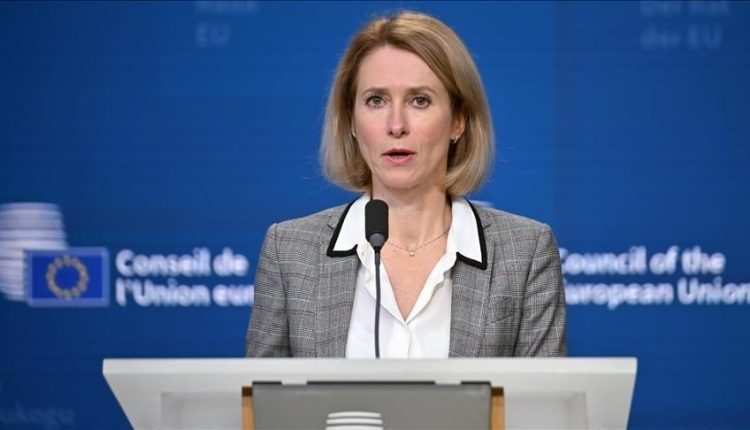EU Considers Easing Economic Sanctions on Syria
By Kardo Roj
DAMASCUS, Syria (North Press) – The European Union is weighing the possibility of loosening economic sanctions imposed on Syria, EU foreign policy chief Kaja Kallas confirmed on Monday ahead of a key ministers’ meeting in Luxembourg.
Speaking to reporters, Kallas said the foreign ministers’ agenda was “heavily focused on developments in the Middle East,” with Syria emerging as a pressing topic for review.
The bloc’s reconsideration comes amid increasing calls from Syrian officials to lift or ease the sanctions, which they say have stifled the country’s ability to recover from years of war and economic collapse.
Kallas noted that ministers would assess “whether a partial lifting or adjustment of sanctions is warranted,” though no specific measures were confirmed ahead of the meeting.
Sanctions on Syria, imposed over a decade ago in response to human rights violations and government crackdowns during the early stages of the Syrian conflict, have been periodically extended. They include asset freezes, travel bans on officials, and restrictions on trade, investment, and banking.
The EU has long argued that the sanctions are targeted and allow for humanitarian exemptions. However, critics—including some EU lawmakers and humanitarian organizations—have called for a broader re-evaluation, arguing that the sanctions indirectly contribute to deteriorating living conditions for ordinary Syrians.
The conversation around easing sanctions has gained momentum in light of shifting regional dynamics, including Syria’s readmission to the Arab League and new diplomatic overtures between Damascus and several European capitals.
The Syrian government has consistently denounced Western sanctions, calling them “collective punishment.” Officials in Damascus have recently intensified lobbying efforts to normalize relations with Europe and secure investment, particularly for reconstruction in war-torn areas.
A partial rollback of sanctions could offer some economic relief, though critics warn it may also embolden Syrian authorities without ensuring real reform or accountability.

